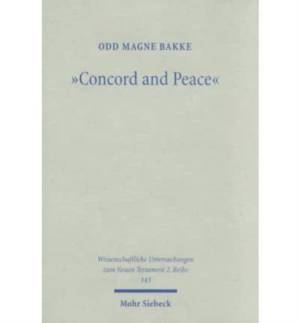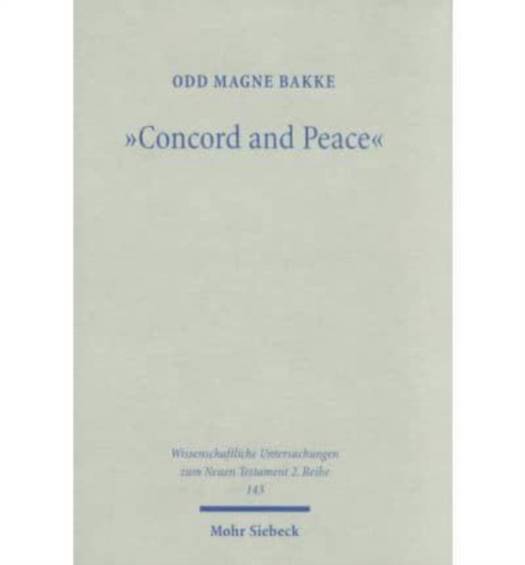
- Afhalen na 1 uur in een winkel met voorraad
- Gratis thuislevering in België vanaf € 30
- Ruim aanbod met 7 miljoen producten
- Afhalen na 1 uur in een winkel met voorraad
- Gratis thuislevering in België vanaf € 30
- Ruim aanbod met 7 miljoen producten
Concord and Peace
A Rhetorical Analysis of the First Letter of Clement with an Emphasis on the Language of Unity and Sedition
Odd M Bakke
€ 101,95
+ 203 punten
Omschrijving
Odd Magne Bakke presents the first in-depth study of 1 Clement from the standpoint of the letter's rhetoric. He bases his methodological analysis on tools from the Graeco-Roman rhetorical tradition, using both the handbooks as well as actual speeches and letters. These are supplemented by tools from modern text linguistics, which the author uses to do a compositional analysis of the letter, and by the tools of modern semantics, used to establish the language of concord in 1 Clement which it has in common with other relevant ancient literature. The author's approach constitutes a fresh reading of 1 Clement and provides new suggestions on several important issues in the immense research on the letter. He demonstrates both the thematic and argumentative unity of the letter. Its macro-structure reflects the conventional parts of the dispositio of ancient rhetoric ( exordium, narratio, probatio, peroratio ). Also, the sub-texts on different levels of these parts are shown to be integrated into and to serve Clement's overall argument for re-establishing concord and peace in the Corinthian church. Odd Magne Bakke questions the traditional views that the conflict in this church was between 'spirit' and 'office' or was a matter of 'doctrine'. He argues that Clement primarily regarded it as a conflict between people of different socio-economic statuses in which a struggle for honor appeared to be an important aspect.
Specificaties
Betrokkenen
- Auteur(s):
- Uitgeverij:
Inhoud
- Aantal bladzijden:
- 390
- Taal:
- Engels
- Reeks:
- Reeksnummer:
- nr. 143
Eigenschappen
- Productcode (EAN):
- 9783161476372
- Verschijningsdatum:
- 1/10/2001
- Uitvoering:
- Paperback
- Formaat:
- Trade paperback (VS)
- Afmetingen:
- 153 mm x 229 mm
- Gewicht:
- 621 g

Alleen bij Standaard Boekhandel
+ 203 punten op je klantenkaart van Standaard Boekhandel
Beoordelingen
We publiceren alleen reviews die voldoen aan de voorwaarden voor reviews. Bekijk onze voorwaarden voor reviews.









